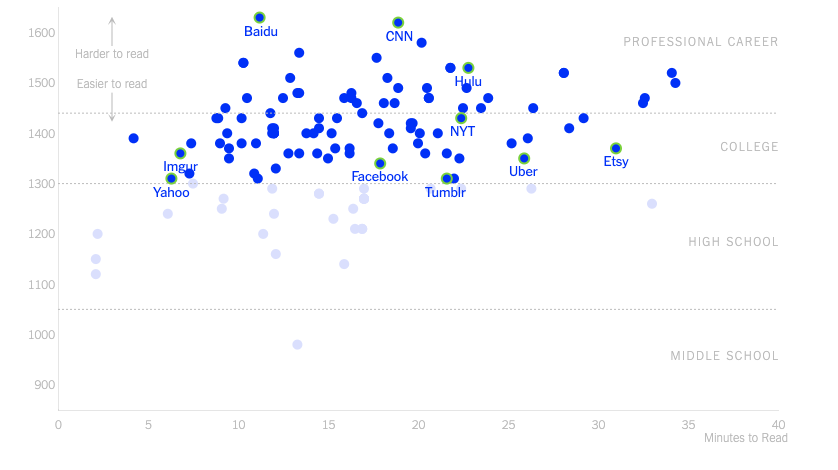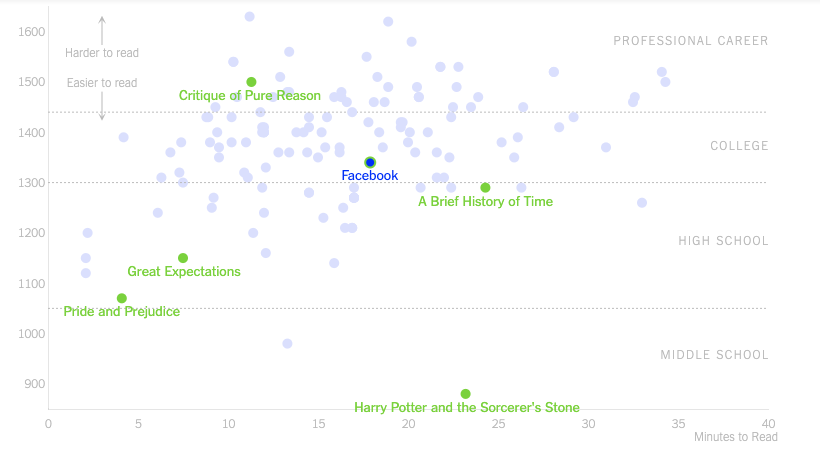The answer, of course, is “nobody.” In a recent opinion piece in the New York Times, Kevin Litman-Navarro explains why. Here’s a chart that summarizes the results of his analysis of the privacy policy statements provided by 150 social media companies. :
 As the chart shows, while a handful of policy statements can be read in less than 5 minutes, most take much longer, but that’s not the only problem. Virtually all of the policy statements require reading skills at or above the college level. As Litman-Navarro observes:
As the chart shows, while a handful of policy statements can be read in less than 5 minutes, most take much longer, but that’s not the only problem. Virtually all of the policy statements require reading skills at or above the college level. As Litman-Navarro observes:
The vast majority of these privacy policies exceed the college reading level. And according to the most recent literacy survey conducted by the National Center for Education Statistics, over half of Americans may struggle to comprehend dense, lengthy texts. That means a significant chunk of the data collection economy is based on consenting to complicated documents that many Americans can’t understand.
To put the level of difficulty in perspective, Litman-Navarro compared the policy statements with the opening chapters of some great works of literature:

The “classic texts” chosen by Litman-Navarro included works by Jane Austen, Charles Dickens, and Stephen Hawking. Significantly, “Only Immanuel Kant’s famously difficult Critique of Pure Reason registers a more challenging readability score than Facebook’s privacy policy.”
While the NYT piece focusses entirely on social media privacy statements, statements consisting of unintelligible fine print that takes too long to read have become ubiquitous. We find unreadable statements attached to virtually all of the products we buy, and most service providers require us to sign unreadable statements before they will do business with us. This proliferation of fine print is troubling in lots of ways, but what especially worries me is the way it tends to undermine an important part of our legal and cultural endowment, namely, the system of contractual obligation. The shift from status to contract was one of the great innovations that made possible the emergence of our modern commercial civilization, and all the freedom and prosperity that goes with it. Because of the proliferation of fine print, however, it’s become normal for people to casually sign agreements without bothering to read them. It’s hard for me to see how a legal regime based on voluntary agreement can survive if no one knows what they’re agreeing to.


